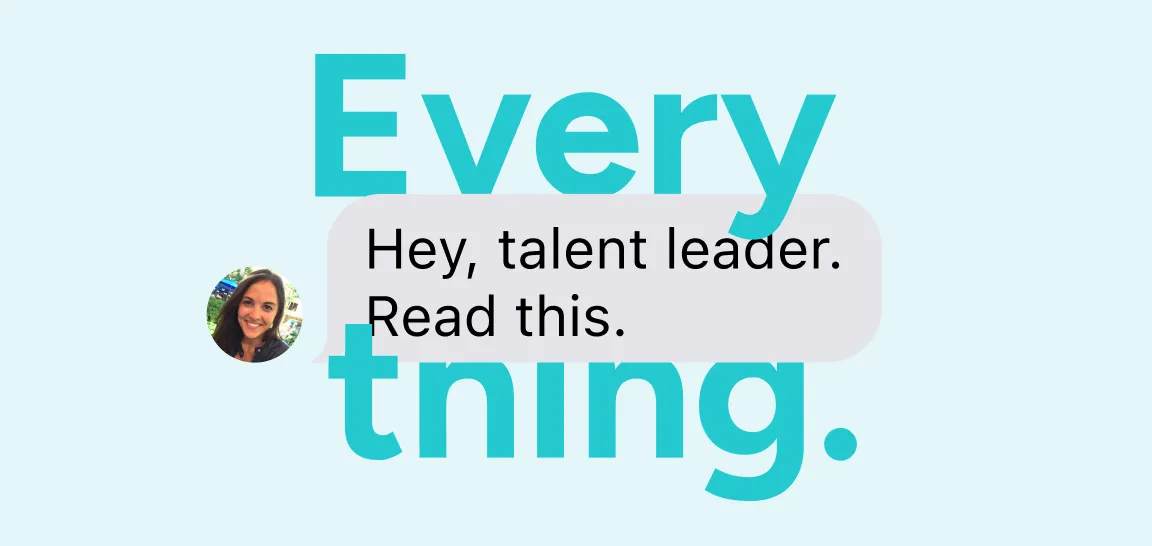Nobody knows who you are.
Well, I mean, unless you’re Google, or Apple, or Amazon — then of course everyone knows who you are. But since most of us don’t work for “unicorn” brands, we’re all languishing in relative anonymity in need of better employer branding.
Our executives (especially CEOs) don’t want to believe this.
CEOs, generally, exist in an alternate reality where everyone knows them and loves them. To be fair, it makes complete sense because every CEO I’ve met is fully bought into their vision for the company. When you are that focused and bought-in, you tend to love your company, the brand, the people, your product, and your services — it kind of comes with the job! So I don’t judge them for their belief that their brand is much bigger and more recognizable than it really is.
Another branding issue is when you’re the “biggest” brand in town. While you might not be an international unicorn brand, you are the hottest thing in your city — or so you think. I live in mid-Michigan, home to Michigan State University, and we have some major, enterprise-level employers in town and there is a strong belief by their TA teams that everyone knows them and what they do.
The crazy thing is — and this is replicated in small and mid-sized markets all over — when we survey candidates there is actually a very small percentage that know the local brands and even fewer that know what they actually do.
So contrary to what you or your CEOs might want to believe, the truth is that nobody has ever heard of you. Which might seem like a bummer, but I’m here to tell you that's OK.
How can you elevate your employer brand to attract the candidates you want to hire?
- Be realistic about who you are within your industry and market, from a candidate perspective. Almost zero people are looking at your career site in your market daily. Probably less than 10% of your addressable candidate market has ever visited your career site. (But for the ones that do, make sure your career site stands out.)
- Build an employee brand advocacy team. Your employees already know who you are and what you do, so start there. Also, start small. GE started its thousand-person plus employee brand advocacy team from scratch.
- Become expert recruitment marketers. Turns out advertising works! Sure, have a great story and all of that, but also, let’s make sure people know you want them to come work for you. With conversational assistants and text recruiting, it’s easier than ever to reach candidates where they are, in the ways that they want; throw a QR code into a digital ad and someone can go from scrolling social media to actively engaging and applying for a job almost instantly.
- Use your employee value proposition to get candidates to opt-out, not opt in. Guess what: we all want to believe we are an employer of choice — and in a way we are — but only for those candidates whose crazy matches our own crazy. Be transparent about who you really are.

We tend to spend 90% of our time on developing our employment branding story and our employee value proposition, and only 10% letting candidates know we actually have a job open. And then we can’t figure out why our pipelines are empty. Of course, someone will care about your EVP, but this isn’t a chicken or egg scenario — it’s both.
Your employment brand isn’t what you create, it’s what your employees already tell you it is. By the way, it’s not the employees that hate you that you want to listen to, it’s those that love you. You can be transparent about who you are and still be aspirational as well. You have employees who love you and that’s the story you hope every new employee will also experience.
Your employment brand matters less than you think!
Look, I know that’s not what you want to hear. We’ve been conditioned to believe our brand is everything. But once you get past the unicorn employment brands and the seemingly unlimited budgets at their disposal, almost all of us are about the same. We try hard to provide a great employee experience, good pay and benefits, and all the other sound bites we put on our career sites to attract new job candidates. For the most part, there isn’t a ton of difference in working a job from one company to the next.
What I find time and time again is that it’s not actually the best place to work for that always has the best talent, but the place that is best at selling itself as the best place to work. Now, you might argue, that’s good branding. I would tell you that’s not branding, that’s advertising, and there’s a subtle difference. One gets you to want to buy and one gets you to buy.
The point is don’t just focus on getting candidates to want to come work for you, because while your “why” is important, the things you view as differentiators might not be as different as you think.
Instead, get caught up in getting them to come work for you. And you do that by getting the little things right, and keeping it simple.
If you missed the previous part, rethinking the white glove experience is here.
Or start from the beginning and rethink the recruiter experience.









